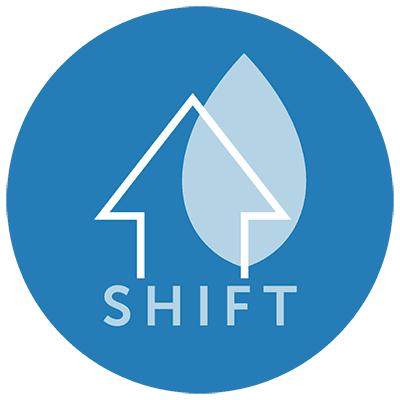At SHIFT we are seeing an increasing adoption of net zero carbon strategy development across several sectors. Recently, we’ve seen Health and Social Care organisations develop their plans to get to net zero.
Alternative Futures Group (AFG), a health and social care charity across North-West England, was keen to engage with the environmental agenda. Providing care and residential facilities to those with learning disabilities and those in need of mental health support, AFG recognise the importance of environmental sustainability and the benefits this can bring.
SHIFT was asked to help establish AFG’s carbon baseline and develop a high-level roadmap to net zero. The report was used to inform the Board of Trustees with the aim to kickstart the net zero action plan and incorporate this into their corporate strategy.
How did we do this?
Taking primary data from across the organisation, including energy consumption at all AFG’s healthcare facilities, offices, and other operations (i.e., business mileage), carbon emission equivalents were calculated across the organisation. The calculated emissions were then divided into Scope 1, 2 and 3 emissions and a full third-party verified SECR report was produced. We also developed several Sankey diagrams to help visualise the distribution of emissions across the organisation (see an illustrative Sankey below).

Energy use at AFG’s healthcare facilities, its Treatment and Recovery Centres (TRCs), covered ~84% of the total organisation emissions. Most of the carbon reduction interventions for the roadmap were targeted at these locations.
All six of AFG’s Treatment and Recovery Centres were benchmarked against national healthcare facilities using BEIS national statistics. A breakdown of their distribution in energy use across the centres and how well they perform against other similar facilities was provided. Energy intensity estimates, calculated from gas and electricity use, allowed for identification of the worst performing facilities, where interventions may be first targeted. Although, to reach net zero, all facilities were recommended for carbon reduction actions. Heating and hot water use were identified as having the greatest energy demand, setting a priority for energy reduction measures. Carbon intensity reduction targets were created for the TRCs providing interim targets on the path to net-zero carbon.
Key priorities for emissions reduction were identified to support AFG’s transition to net zero They focus on:
- Addressing reduction in heating energy use
- Adopting smart technologies to assist in the monitoring and control of energy use
- Preparing to transition from gas to a net zero electricity grid
- Installing solar photovoltaics on healthcare facilities’ roofs
- Awareness-raising and education for staff members
- Transitioning to electric vehicles for company pool cars
- Implementing climate resilient measures
A more detailed roadmap was developed that addressed all areas of the organisation. It was recommended that AFG follow an ambitious pathway to net zero as this best supported the attainment of AFG’s five strategic aims.
“The report from SHIFT has been very helpful. We have a much better understanding of where we are and what we need to do in each phase of our journey. This will really help begin our transition to net-zero carbon”- Andrew Kendall, Director of Corporate and Commercial Development, Alternative Futures Group
SHIFT Environment were delighted to have worked with Alternative Futures Group on this project. If you are interested in assessing your buildings and operations emissions and performance, please contact us.
